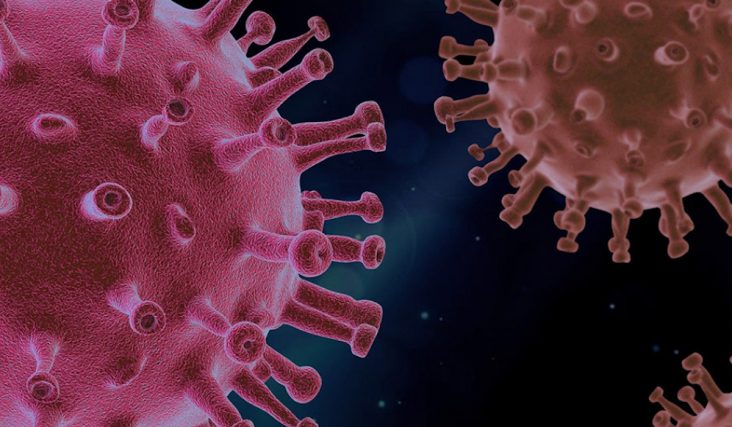DHS preps for possible end of COVID emergency next week
by November 5, 2022 7:52 am 2,307 views

The Arkansas Department of Human Services says the federal government may end the COVID-19 public health emergency as early as the week of Nov. 7-11. If that happens, DHS will start removing potentially hundreds of thousands of ineligible Arkansas Medicaid recipients for the first time in three years.
In a meeting with reporters Friday (Nov. 4), Department of Human Services Director Mark White emphasized that DHS officials don’t know for certain that the U.S. Department of Health and Human Services will declare the emergency to be over.
He said state officials suspect the end may be coming “based on, I would call, chatter nationally,” including comments in the press, other states, and the federal Centers for Medicare and Medicaid Services.
“They have not admitted to anything, but certainly in the things they are saying, it points this direction,” he said.
The task for reverting back to normal once the emergency ends will not be an easy one.
“Unwinding the public health emergency will be the largest and most complex effort state Medicaid programs have undertaken since the implementation of the Affordable Care Act almost a decade ago,” he said.
White said an end to the emergency would “trigger off a chain of events as well as a plan that we have been working on for many months to implement.” He said hundreds of thousands of Arkansans will have to work with DHS to renew and redetermine their eligibility.
White said if the federal government does not make the announcement next week, it would suggest it intends to extend the emergency at least through the spring.
The emergency was first declared in January 2020. It is scheduled to end Jan. 11, with client coverage beginning to end Jan. 31, but it has been regularly renewed at three-month intervals since it began. The federal government has said it would give states 60 days notice of the end date. The notice would have to come by Nov. 11, which is Veterans Day.
Former President Donald Trump on March 18, 2020, signed into law the Families First Coronavirus Response Act, which increased federal matching Medicaid funds by 6.2% in exchange for states meeting certain conditions, including extending eligibility throughout the public health emergency. Arkansas’ match rate tends otherwise to be around 71%.
During the emergency, the only ways clients have lost Medicaid benefits were if they moved out of state, requested to end coverage, were incarcerated or died.
As of Oct. 17, 34% of the Medicaid population, or 385,650 clients, were considered to be “extended” because they couldn’t be disenrolled. In total, DHS has extended more than 500,000 Arkansans throughout the emergency, said Dawn Stehle, DHS deputy director for health and the state’s Medicaid director.
Those clients ordinarily would have been disenrolled because they reached an income that exceeded eligibility limits, because they did not respond to a request for information for renewal, because they had a change in their care that would have ended their eligibility, or because they aged out of a program.
The largest batch of those clients, 119,934, are enrolled in the state’s ARHOME program, which is the state’s Medicaid expansion program under Obamacare. Next, with 103,871 recipients, is ARKids A/B, which provides health insurance to children.
Since March 2020, the Medicaid rolls have increased by 22.8%, or 209,883 individuals. White said some people could have been double covered by both Medicaid and also other providers, but the state received extra federal funding to help cover its costs.
Unlike some states, DHS continued processing applications and renewals during the emergency, allowing it to track which clients would have lost eligibility. States that didn’t track their populations are having to start from the beginning, White said.
DHS will have to determine eligibility for all those individuals. Under Act 780 of 2021, DHS is required to finish redetermining eligibility for extended individuals within 180 days of the emergency’s end.
Stehle said clients are being contacted to ensure they complete their renewals before the unwinding begins. Medical providers will be provided lists of clients who are at risk of losing coverage. So-called “escalation units” connected to call centers are being bulked up for urgent and complex cases. DHS also is working to reach clients through community organizations and other outreach efforts.
Meanwhile, providers due for recertification during the emergency must complete the full recertification process in order to continue serving Medicaid clients.
